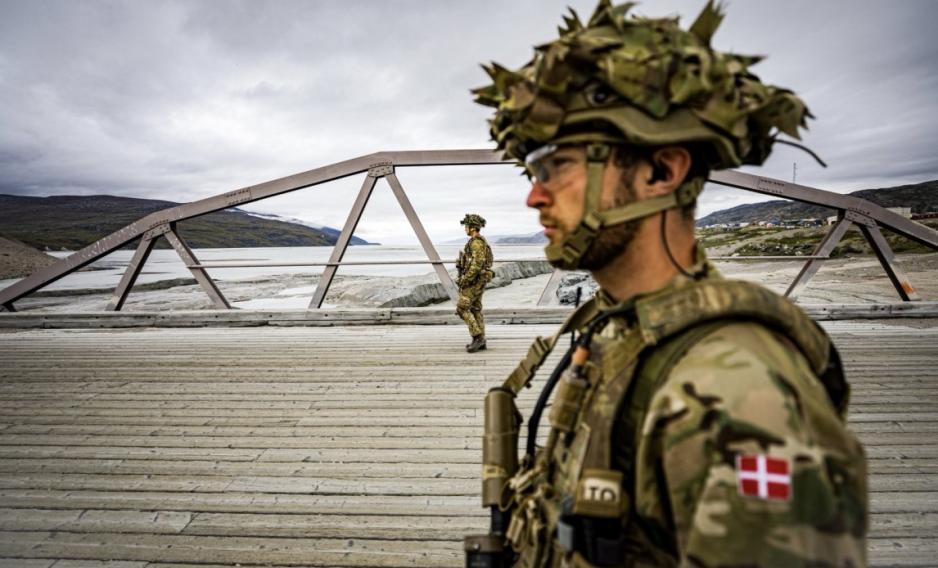Newsletter The End of Arctic Exceptionalism?

On Sunday, around 100 soldiers from a light infantry battalion landed in Kangerlussuaq, Greenland. They will train to guard critical infrastructure along the west coast of Greenland. Earlier in June, a frigate and two helicopters arrived to reinforce the military mission on and around the island. (Photo: Rebekka Gimm/Danish Defence)
Dear reader. An ice-cold wind is blowing through international cooperation. Can the Nordics stand together against the pressure from outside forces, along with their European allies? Here are the top stories from the North.
Ever since Putin invaded Ukraine and now Trump's sabotage of the US democracy, the alarm has been sounded in the Arctic camp. As international cooperation crumbles, the Nordics find strengthened unity with the rest of Europe.
The storms have been particularly strong around Greenland, and the Danish prime minister now believes the commonwealth is in a dangerous situation.
France is ready to step up its engagement in the Arctic through joint exercises and economic and social partnerships, the French President announced during a visit to Greenland.
Is there hope for the so-called exceptionalism that has characterized the deep peace in the High North?
“Arctic exceptionalism was never a legal framework but a political narrative, and perhaps, it will be again. But cutting ties doesn’t necessarily diminish authoritarian influence», writes researcher Eda Ayaydin.
Meanwhile, US President Donald Trump continues to threaten aid for Ukraine.
“Instead, he sends soldiers against his own people. Whether or not he, as president, is allowed to do so is apparently beside the point”, writes commentator Arne O. Holm in his weekly column.
Troubled mining operations and double standards
It is not necessarily the case that new doors open when old ones close. At least not within mining in Northern Norway.
In June, the last Norwegian coal mine will be closing on Svalbard. This marks the end of over 100 years of Norwegian coal production on the Arctic Island.
As soon as Canadian Blue Moon Metals started underground construction of the Nussir mine in Northern Norway, all operations were paused until further notice.
Despite talk about an EU ban on Russian gas, little is happening.
Even if short-term and new contracts could come to an end in 2026, the bulk of imports under long-term agreements would continue for another 2.5 years, potentially sending another €30-40 billion to Russia.
Cultural news
Next week, High North News kicks off its debate concept, High Noon, during the True Northern Arts Festival. Editor Arne O. Holm and Journalist Astri Edvardsen will offer exciting conversations about art and culture, politics, and other areas of society under the headline 'Everything is about security.' (Norwegian only)
If you're lucky and find yourself in Harstad, you can experience the festival in person. But to be safe, we will be streaming HNN's events.
Also, read the Arctic scientist profile on Anka Ryall and her research on polar women.
Read all this and more at High North News. Stay tuned for more news from and about the North.
Arctic summer greetings from Editor-in-Chief Trine Jonassen


